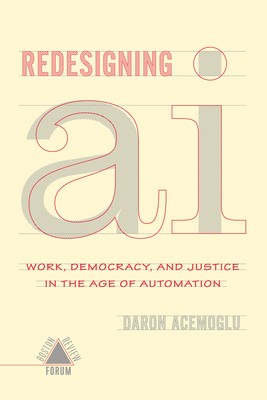
- We will send in 10–14 business days.
- Publisher: BOSTON REVIEW
- Year: 2021
- Pages: 192
- ISBN-10: 1946511625
- ISBN-13: 9781946511621
- Format: 15.2 x 22.6 x 1 cm, minkšti viršeliai
- Language: English
- SAVE -10% with code: EXTRA
Redesigning AI (e-book) (used book) | bookbook.eu
Reviews
Description
A look at how new technologies can be put to use in the creation of a more just society. Artificial Intelligence (AI) is not likely to make humans redundant. Nor will it create superintelligence anytime soon. But it will make huge advances in the next two decades, revolutionize medicine, entertainment, and transport, transform jobs and markets, and vastly increase the amount of information that governments and companies have about individuals. AI for Good leads off with economist and best-selling author Daron Acemoglu, who argues that there are reasons to be concerned about these developments. AI research today pays too much attention to the technological hurtles ahead without enough attention to its disruptive effects on the fabric of society: displacing workers while failing to create new opportunities for them and threatening to undermine democratic governance itself. But the direction of AI development is not preordained. Acemoglu argues for its potential to create shared prosperity and bolster democratic freedoms. But directing it to that task will take great effort: It will require new funding and regulation, new norms and priorities for developers themselves, and regulations over new technologies and their applications. At the intersection of technology and economic justice, this book will bring together experts--economists, legal scholars, policy makers, and developers--to debate these challenges and consider what steps tech companies can do take to ensure the advancement of AI does not further diminish economic prospects of the most vulnerable groups of population.EXTRA 10 % discount with code: EXTRA
The promotion ends in 21d.02:51:22
The discount code is valid when purchasing from 10 €. Discounts do not stack.
- Publisher: BOSTON REVIEW
- Year: 2021
- Pages: 192
- ISBN-10: 1946511625
- ISBN-13: 9781946511621
- Format: 15.2 x 22.6 x 1 cm, minkšti viršeliai
- Language: English English


Reviews